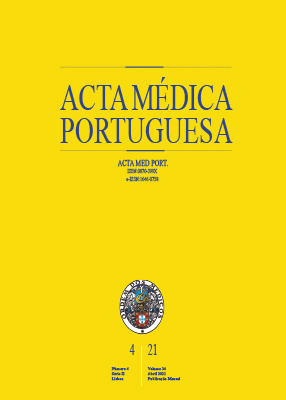Obstetric Surgery with High Risk of Postpartum Hemorrhage in a Jehovah’s Witness
DOI:
https://doi.org/10.20344/amp.12763Keywords:
Jehovah’s Witnesses, Postpartum Hemorrhage/prevention & control, Tranexamic AcidAbstract
Postpartum Hemorrhage is still the leading cause of maternal mortality. The management of patients who refuse allogeneic blood transfusion, like in the case of Jehovah’s Witnesses, is clinically and ethically challenging. We describe the case of a woman with several risk factors for major postpartum hemorrhage, specifically the presence of a giant uterine myoma. The multidisciplinary management of this patient included an elective c-section and the use of prophylactic tranexamic acid. The perioperative and peripartum care of Jehovah’s Witnesses requires specific strategies to minimize blood loss, optimize oxygen delivery and consumption, enhance hemoglobin production, correct coagulation defects and promote hemostasis. We highlight the need for a multidisciplinary approach, point-of-care testing and the use of fibrinogen concentrate and tranexamic acid, according to the patients’ informed consent.
Downloads
Downloads
Published
How to Cite
Issue
Section
License
All the articles published in the AMP are open access and comply with the requirements of funding agencies or academic institutions. The AMP is governed by the terms of the Creative Commons ‘Attribution – Non-Commercial Use - (CC-BY-NC)’ license, regarding the use by third parties.
It is the author’s responsibility to obtain approval for the reproduction of figures, tables, etc. from other publications.
Upon acceptance of an article for publication, the authors will be asked to complete the ICMJE “Copyright Liability and Copyright Sharing Statement “(http://www.actamedicaportuguesa.com/info/AMP-NormasPublicacao.pdf) and the “Declaration of Potential Conflicts of Interest” (http:// www.icmje.org/conflicts-of-interest). An e-mail will be sent to the corresponding author to acknowledge receipt of the manuscript.
After publication, the authors are authorised to make their articles available in repositories of their institutions of origin, as long as they always mention where they were published and according to the Creative Commons license.









